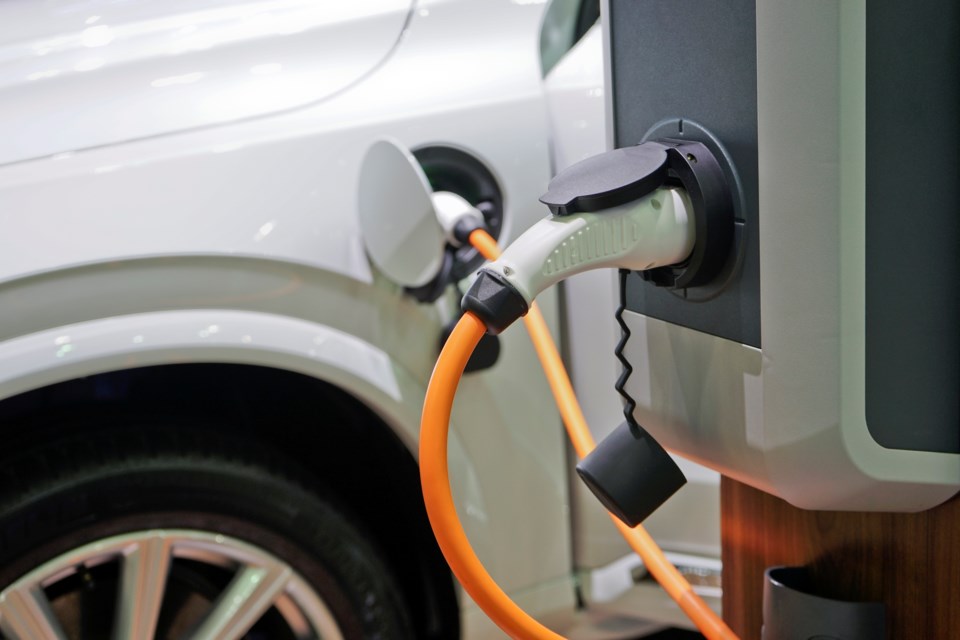I am experiencing déja vu lately about an earlier lesson on technology, markets and consumer behaviour rolled into one.
It brings me back to the late 1970s, when I emptied my bank account to buy a Sony Betamax video cassette recorder. The extraordinary device could record my television set for up to two whole hours, skip commercials and play movies.
Still, a Betamax competitor had just launched: JVC’s Video Home System (VHS). Their videotapes didn’t possess the same technical quality, so I just assumed they would never take off. Then again, they could record for six, even eight hours. There were more manufacturers, so they were cheaper. Studios released more movies on them to rent and buy.
In tech terms Betamax wasn’t a lemon, but the consumer and retail acceptance of VHS created a dominant network effect. I realized I had superior but unsuccessful tech in my living room. It was an early lesson in how markets work.
I am approaching a reprise of that lesson with my electric vehicle, only with a different ending.
I bought a used EV five years ago for $30,000, and think its manufacturing standard is great. But while in Europe recently, I started to think I’m backing the wrong horse again.
I saw a raft of new Chinese vehicles, some of them pricey but many of them cheaper – the BYD Seagull lists at US$9,700 and the entry-level BYD Dolphin is US$13,900. Their price points handily undercut vehicles from manufacturers we know. The Nissan LEAF and Chevrolet Volt retail for about $41,000 in Canada, the most affordable of the bunch.
In the years I’ve owned an EV, I could tell that price was the predominant impediment for urban drivers. Battery range and vehicle heft are the additional problems in rural settings. Charging infrastructure on the road is an issue for all of us.
But the next emerging barrier to market growth stands to be North America’s relationship to China, its determination to lead the world in manufacturing, and the crossroads we are at as consumers and as a continent trying to hold back the incessant tide of China’s industrial strategy. It doesn’t help that we consider each other threats.
We face a different domestic environment than the one consumers faced in their choice of video cassette players. No one groused then about foreign competition or threatened measures to prevent mass marketing. And, most importantly, we didn’t have policies backed by legislation to introduce the technology and retire an old technology, as we do now with greenhouse gas-free vehicles. Those policies are about to hit the wall.
In B.C., the government has mandated a target of 90-per-cent emission-free new vehicle sales by 2030, 100 per cent by 2035; we’re now sitting around 22 per cent. EV sales have slowed, and it will take enormous economic resources to induce more than the early adopters into the market. Those Chinese cars are awfully tempting as remedies.
But America has elected consecutive presidents, and will re-elect one of them this year, who have reversed policies of industrial engagement with China to protect jobs at home. It is increasingly choosing a future of happy communities with jobs over happy consumers with spending prowess. It’s also in many sectors choosing second-rate technology in its barricading of domestic industry and pouring massive taxpayer subsidies to make global competition appear real.
In the case of EVs, President Joe Biden has quadrupled the tariff on Chinese EVs to 100 per cent. That US$12,000 car would be US$24,000. (Donald Trump wants to go further and quell the entire EV business and the policy targets for it.) It’s not clear where this leads beyond EVs, but buyers beware.
Canada has yet to add its voice on the Biden tariffs, but it’s difficult to see how we won’t follow suit with our ally. China has shifted in the last decade from a nation we wanted more of, and whose politics we thought could be influenced by the West, to one we consider hostile to our economic sovereignty and security.
Canada is trying to corner a market as an EV battery manufacturer and to create a domestic EV supply chain, but we are years behind China already. America in particular and Canada in general don’t appear in the mood to extend an invitation to Beijing to manufacture here. Those cheaper EVs on the other side of the world can stay there, we appear to be saying.
The likely result of this anti-China trade policy is that our recent inflation faces a resurgence before long, when a raft of manufactured goods from China are tagged with increased barriers of entry.
And the fight for global manufacturing supremacy will sweep aside an important ingredient in our environmental strategy, unless we pour market-distorting consumer incentives into subsidizing our more expensive products.
For my next car, I don’t think I’ll get the 21st century version of VHS.
Kirk LaPointe is a Glacier Media columnist with an extensive background in journalism.




